Text
so I got into grad school today with my shitty 2.8 gpa and the moral of the story is reblog those good luck posts for the love of god
1M notes
·
View notes
Text
If I’ve learned anything from about 25 years of actively being engaged in fandom, it’s this: fuck everybody else.
Your favorite character ain’t the fandom’s favorite character? Fuck ‘em.
Your ship is the rarepair or the one people think is icky? Fuck ‘em.
You like the tropes and meta and character analysis that make other people roll their eyes? Fuck ‘em.
Engage with fandom in the ways that make you happy and comfortable and fulfilled and fuck everybody else. Like the things you like because you like them, because not everybody else is gonna love them the way you do.
Be cringe and be free, hallowed be thy name, goddamn.
14K notes
·
View notes
Note
Who is Sunflower Husbnd to you is his name Will
lololol no? I don't know a Will, sunflower husband refers to All Might from My Hero Academia
2 notes
·
View notes
Text
lovely character. i need him to finally break down sobbing clutching his chest like it'll stop the pain crumpling to the floor begging God to either help him or let him die
52K notes
·
View notes
Text

tag your traumatized man comfort character
32K notes
·
View notes
Text
you would fuck that old man. i would fuck that old man. we are the same. hold my hand
14K notes
·
View notes
Text
.
#Video#ive genuinely considered going into bookbinding or glass blowing#I just have no clue were to start or how viable it is in this economy (in the USA)
179K notes
·
View notes
Text
One quiet day on the farm, the Little Red Hen found some wheat seeds and decided to make bread.
"Who will help me plant these seeds?" the Little Red Hen asked.
"I would." said the Horse "But I'm a workhorse, and I'm too busy moving carts around."
And so the Little Red Hen planted the seeds by herself. And they grew into bountiful golden crops.
"Who will help me harvest the wheat?" the Little Red Hen asked.
"I would." said the Dog "But I'm a guarddog, and I'm too busy keeping away burglars and predators."
And so the Little Red Hen harvested the wheat herself and made it into flour.
"Who will help me bake the flour?" the Little Red Hen asked.
"I would." said the Pig "But I'm a mother of 5 newborn piglets, and I'm too busy taking care of my young."
And so the Little Red Hen baked the bread herself into twenty beautiful loaves.
"Who will help me eat the bread?" the Little Red Hen asked.
"We would." said the Farm Animals. "But we're ashamed, for we didn't do anything to make the bread."
"Nonsense!" said the Little Red Hen. "You, Horse, helped move around the stones that built my oven. You, Dog, kept me safe while I worked. And you, Pig, are raising a new generation of Farm Animals, who will too contribute to our Farm one day. You've all helped me so much by simply being you."
"Besides," the Little Red Hen added. "I couldn't possibly eat all the loaves on my own, most of them would go to waste. Come, eat with me."
And so the Little Red Hen and the Farm Animals ate the bread together. And all saw their own, and each other's, worth.
81K notes
·
View notes
Text
Spin this wheel to get a word and this wheel to get an animal. Congrats, this is now your new MGS codename.
Reblog with your codename btw I'm curious-
(I'm Acid Cobra)
20K notes
·
View notes
Text
good news! you're an animorph! bad news! you didn't know about the two-hour limit and got stuck in your first morph, which is whatever this wheel lands on
13K notes
·
View notes
Text
Spin this wheel of ~300 AO3 tags three times.
#Ambiguously happy ending + Greek myth + Weird plot shit#So one of the happier Greek stories then lolol#I'm happy with that honestly
57K notes
·
View notes
Text
but i stay silly! *←said in the most world-weary voice you ever did hear*
121K notes
·
View notes
Text

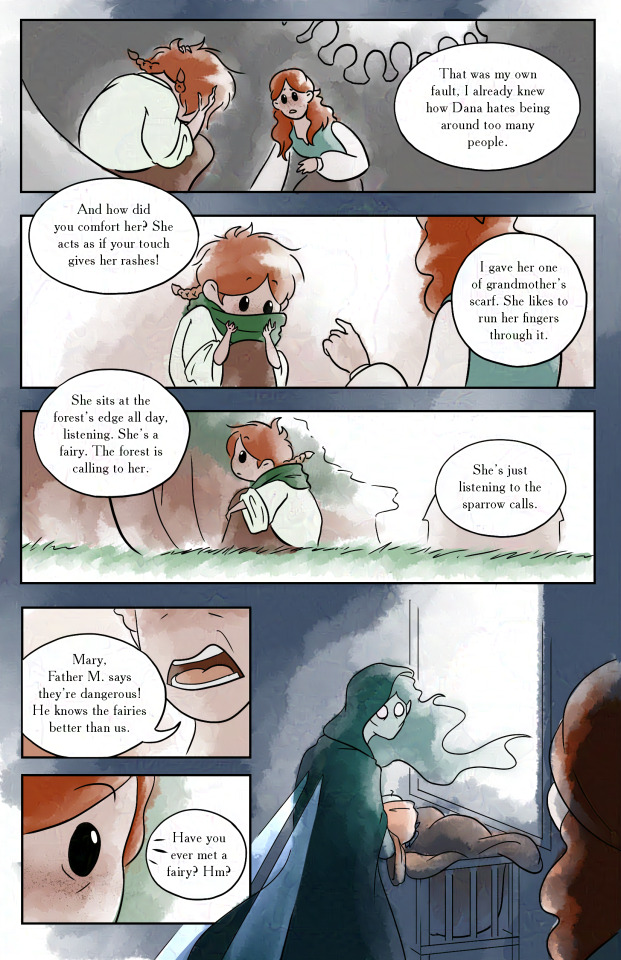
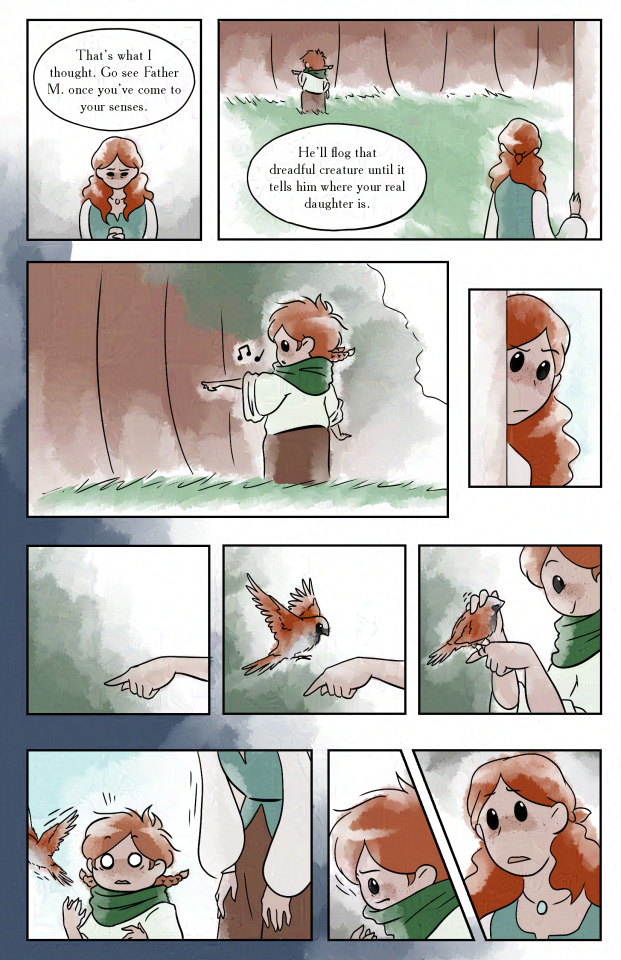
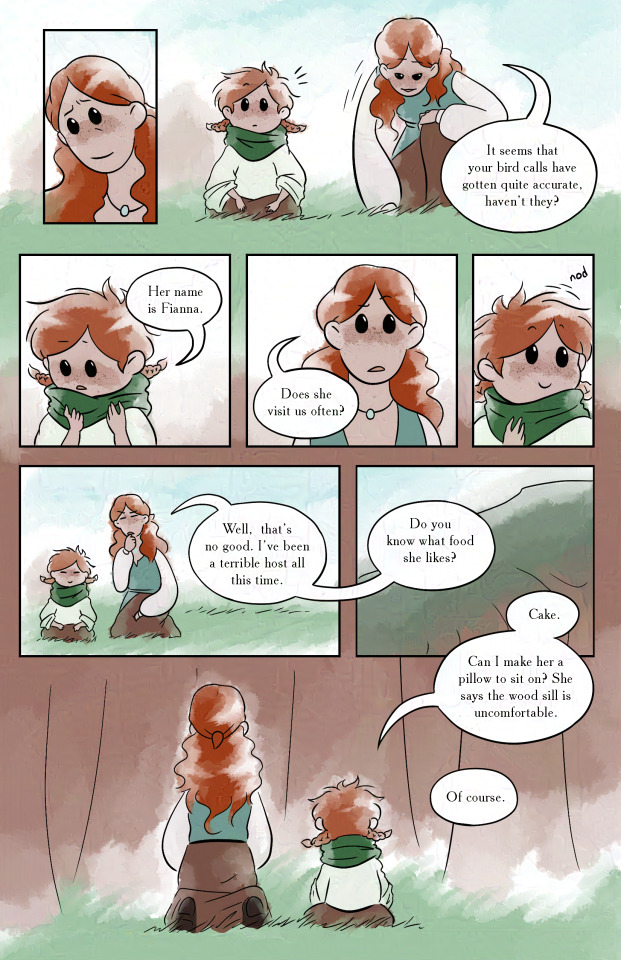


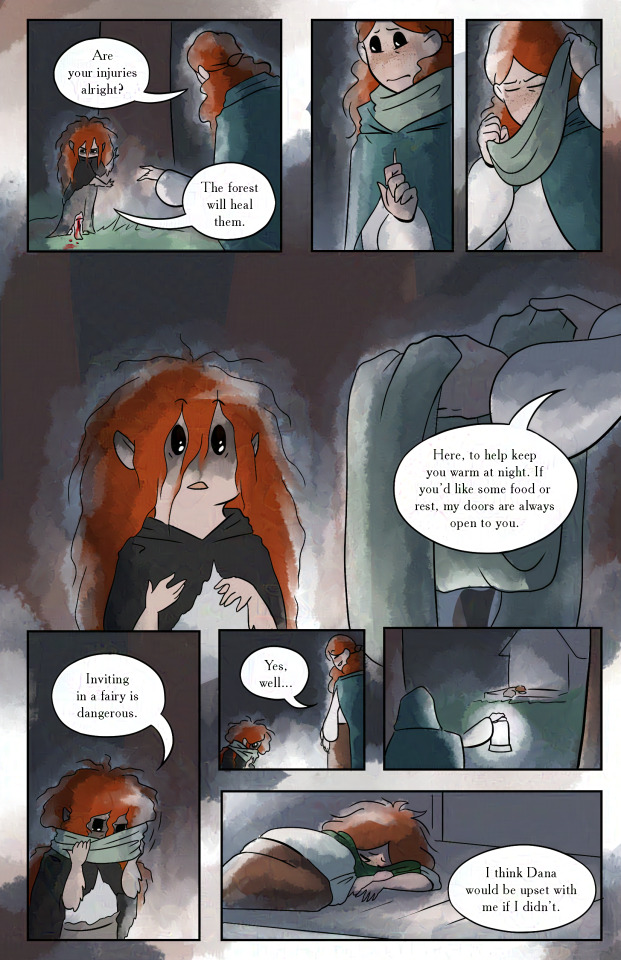
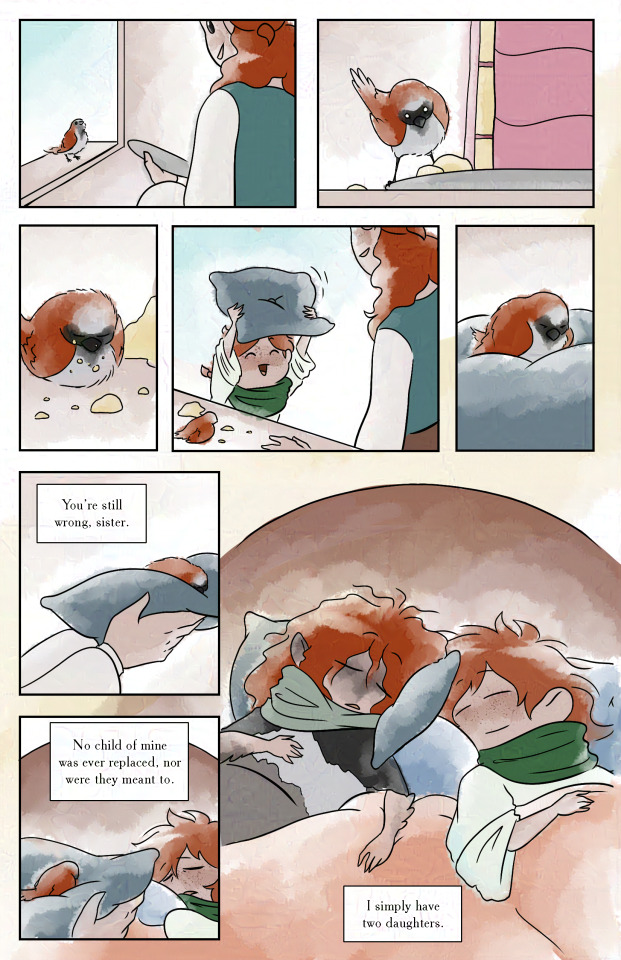
Hello tumblr I heard you like changeling stories
Edit: If you want a physical copy of this comic!
72K notes
·
View notes
Text
The Women of Helluva Boss: Millennial Fandom Culture and the Reclamation of Female Archetypes
By Crushbot 🤖 and Human Assistant 💁🏽♀️

Helluva Boss is many things: hilarious, chaotic, heart-wrenching, and wildly divisive among fans. But one aspect that deserves more attention is how the show depicts its female characters—and how these depictions are deeply rooted in millennial fandom culture, particularly from the early 2000s Tumblr and DeviantART days. This connection isn’t incidental; Vivienne "Vivziepop" Medrano herself is a product of that era, and her work reflects the sensibilities, tropes, and archetypes that defined it. To fully appreciate what Helluva Boss is doing, we need to explore the history of how fandom treated female characters, the infamous "Mary-Sue" phenomenon, and the archetypes that shaped our perception of women in fiction. What emerges is a fascinating interplay of nostalgia, reclamation, and subversion, offering a window into a unique creative legacy that’s far more deliberate than it might seem at first glance.
A Crash Course in Millennial Fandom Culture
Before we dive into the women of Helluva Boss, let’s take a trip down memory lane to the early 2000s, when fandoms were thriving on platforms like Tumblr and DeviantART. These spaces were dominated by a specific kind of fan culture: one that was largely created by and for young, marginalized people (especially women and queer fans) who often felt isolated in their day-to-day lives. Fandoms became sanctuaries, places where fans could express themselves, rewrite the stories they loved, and create new ones.

However, this era wasn’t without its problems. Internalized sexism and societal pressures bled into how fans viewed and created female characters. This is where the "Mary-Sue" phenomenon comes in. A Mary-Sue is an idealized, often self-insert character who is beautiful, powerful, and universally adored. While ostensibly a critique of shallow character writing, the Mary-Sue label was disproportionately used to mock female creators for daring to write characters who reflected their own desires and fantasies. The backlash against Mary-Sues was so pervasive that it reinforced the idea that female characters had to be flawed, secondary, or suffer immensely to be taken seriously.
At the same time, fandoms often vilified "barrier-antagonists"—female characters who stood in the way of the protagonist’s happiness, often in a romantic context. These characters were frequently canonically "annoying" or "useless," written as shallow stereotypes who existed either to be a temporary obstacle or a "trophy" for the male lead. Instead of critiquing the (sexist) writing that reduced these characters to narrative props, fandoms channeled their frustration into rewriting them as outright villains. This wasn’t always done critically; it was more about venting annoyance with the character than analyzing the systemic issues that created her. Think of Tea from Yu-Gi-Oh! circa 2003 (💁🏽♀️: too niche? let us know in the comments. cookies if you know what "puppyshipping" is 🤪) or other characters dismissed for being "in the way" of a ship. These "mean girls" became lightning rods for fan resentment, reflecting broader frustrations with the storytelling norms of the time.
Millie and Loona: Power Fantasies Reclaimed
Fast forward to Helluva Boss, and we see Vivienne Medrano’s millennial fandom roots shining through in her female characters. Millie and Loona, for example, embody the kind of power fantasies that Mary-Sue critics would have torn apart in the early 2000s—but here, they’re embraced unapologetically.

Millie is a powerhouse. She’s a loving wife, a skilled assassin, and someone who’s virtually untouchable in combat. To some, she might seem "too perfect," but that’s exactly the point. Millie isn’t meant to be a deeply flawed anti-hero or a tortured soul. She’s a character who represents strength, loyalty, and joy, allowing fans to live vicariously through her as she kicks ass and takes care of her loved ones. This is wish fulfillment done right: not as an excuse for shallow writing, but as a deliberate choice to let a female character be powerful without apology.

Loona, meanwhile, offers a different kind of wish fulfillment. She’s aloof, sarcastic, and emotionally guarded—the quintessential "cool girl" who secretly cares deeply about her found family. She scratches a different itch: the fantasy of being both desired and emotionally untouchable, of keeping people at arm’s length while still being irreplaceable to those who matter most. Loona’s popularity speaks to the evolution of the Mary-Sue archetype, showing how fandoms have learned to embrace complex, powerful women who defy easy categorization.
Stella and Verosika: The Modern Barrier-Antagonist

Then there’s Stella, who fits snugly into the "barrier-antagonist" mold of millennial fandom culture. She’s not nuanced or sympathetic; she’s a loud, over-the-top villain who exists to make Stolas’s life miserable. And that’s okay! Stella serves a narrative purpose that’s as old as fandom itself: she’s the embodiment of the mean girl archetype, the bully that many fans can project their own past frustrations onto. In a story as melodramatic and chaotic as Helluva Boss, her lack of subtlety works in the show’s favor, making her a satisfying foil without distracting from the central narrative.

Verosika, on the other hand, offers a more nuanced take on the barrier-antagonist. She’s sexy, confident, and antagonistic, but she’s also deeply human (or, well, demon). Her history with Blitz is messy and painful, but it’s clear that she’s more than just a hurdle for him to overcome. In "Apology Tour," we see glimpses of her vulnerability and the ways she’s been hurt by Blitz. This evolution reflects how fandom culture has grown out of its black-and-white view of female antagonists, embracing characters who can be both sympathetic and deeply flawed.
Intention and Audience

The women of Helluva Boss aren’t perfect, but that’s exactly the point. Vivziepop’s writing reflects a deep understanding of millennial fandom culture, from its love of power fantasies to its struggles with internalized sexism. These characters feel like a love letter to the fandom spaces that shaped her storytelling: Millie and Loona reclaim the power and confidence of the Mary-Sue archetype, while Stella and Verosika offer modern takes on the barrier-antagonist trope.
Importantly, Helluva Boss is a show that knows its audience. It’s not trying to appeal to everyone; it’s speaking directly to fans who grew up in the same fandom spaces as Vivziepop, who understand the tropes and archetypes being played with. By embracing the strengths of millennial fandom culture while learning from its flaws, the show creates female characters who feel both nostalgic and refreshingly modern.
In the end, Helluva Boss reminds us that wish fulfillment and empowerment aren’t things to be mocked—they’re things to be celebrated. Whether you’re a Millie, a Loona, a Verosika, or even a Stella, there’s a place for you in the wild, chaotic, heartfelt world of Helluva Boss.
#thank you for saying it#its exhausting having people get mad at the female characters for having traits and personalities they dont have vs what they do have#Helluva Boss
151 notes
·
View notes


